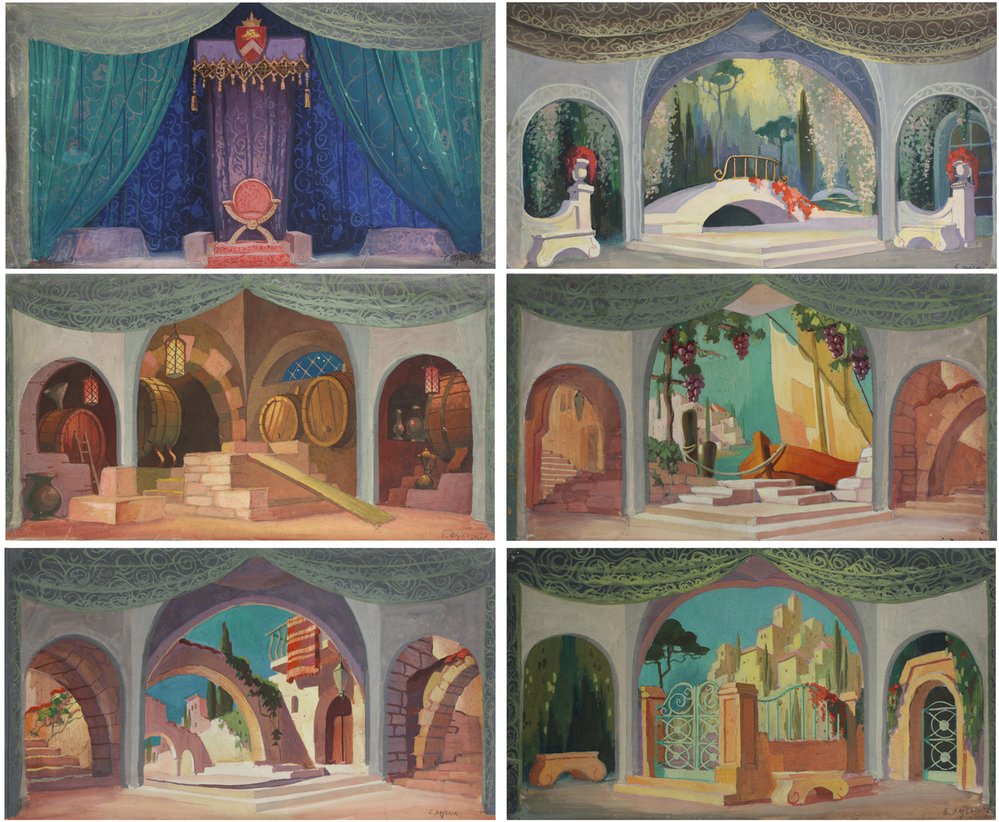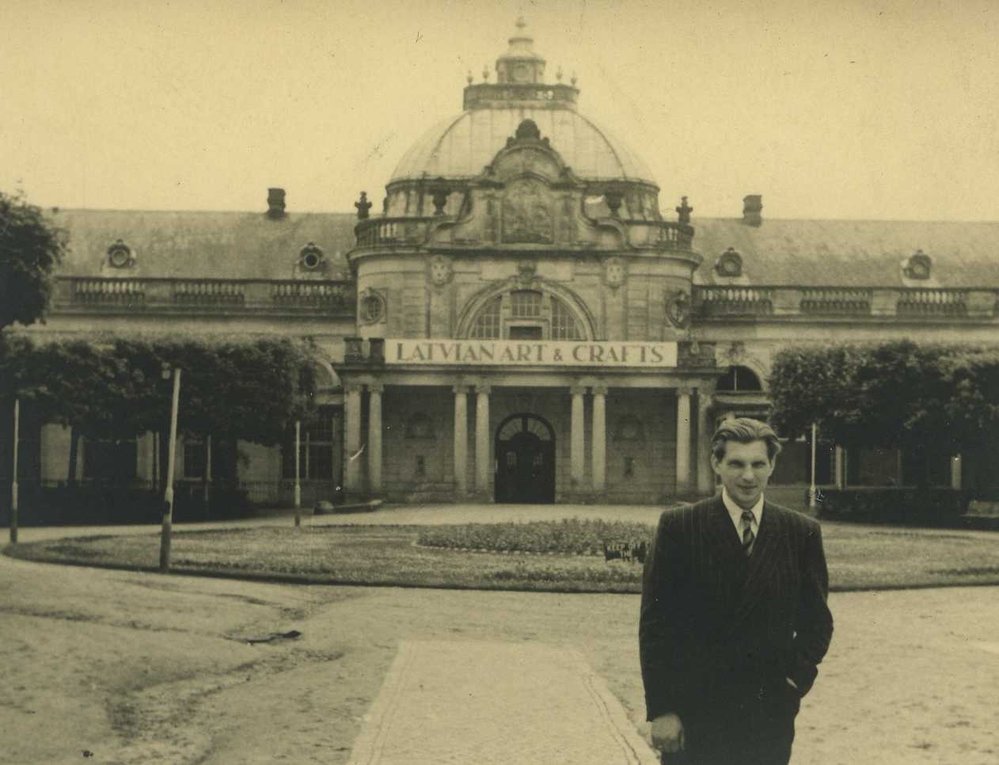Stop 18

Six set design sketches for the Latvian Theater of Meerbeck's production of Twelfth Night by William Shakespeare, Germany. | Sešas skatuves skices Viljama Šekspīra Divpadsmitās nakts izrādei Mērbekas latviešu teātra izpildījumā.
Reading left to right: / Lasot no kreisās uz labo:
Act I, Scene 1:
The Throne at Orsino’s Palace.
I cēliens, pirmā
aina: Tronis Orsinso pilī.
Act I, Scene 2:
The Seacoast.
I cēliens, otrā
aina: Jūras krasts.
Act II, Scene 3:
Wine Cellar at Olivia’s House.
II cēliens,
trešā aina: Vīna pagrabs Olīvijas mājā.
Act III, Scene 1: Olivia’s Garden.
III cēliens, pirmā aina: Olīvijas dārzs.
Act III, Scene 3:
On a Street in Illyria.
III cēliens, trešā aina: Uz ielas Ilīrijā.
Act IV, Scene 1:
Before Olivia’s House.
IV cēliens, pirmā aina: Olīvijas mājas priekšā.
Tempera, 8.75 in x 13 in (22.23 cm x 30.02 cm), 1947.
Given the uncertainties of the political environment in the postwar era and the ambiguity of the future, the theater company’s performances were a welcome bit of relief from the challenges of daily life as a refugee. The company's production of Twelfth Night became particularly legendary during this era. Performances sold out because production values were very high. Featuring well-known actors from the National Theater and the Dailes Theater and musical scores composed by members of the Latvian Conservatory of Music, Twelfth Night brought rave reviews for the Meerbeck Theater Company. The play was performed for officers of the British Army, who were delighted to see Shakespeare being performed in the unlikely context of a displaced persons camp. While the performances were in Latvian, the plot was perfectly familiar to the officers and thus needed no translation. Word spread of the quality of the show and eventually a performance of this production was filmed by the BBC. The theater not only had entertainment value; it also served as a public relations tool for the Latvian refugee community. The work bought goodwill from the British authorities. The British Army offered the community opportunities to produce large Latvian and Baltic arts festivals at the headquarters of the British Army of the Rhine, in Bad Oeynhausen. The bright colors in my father’s designs for the production reflect the light, playful atmosphere he created for Shakespeare’s delightful comedy.
